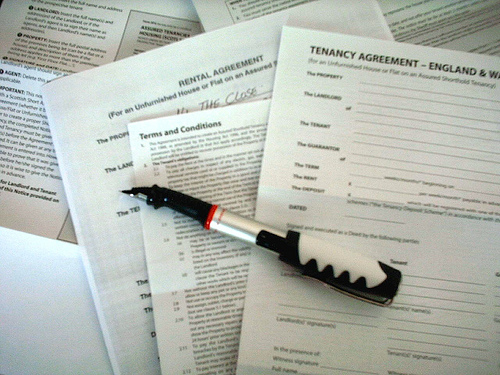 “Can I sue for a broken contract?” is a question many people asking when they need a good Georgia contract lawyer. Many times during contract disputes, clients often feel that “even though a particular obligation is not written within their contract with another person or entity, it’s common sense that that person or entity breached the contract by not performing a certain service, or acting a certain way.” Depending on what service, or what conduct, the client is referring to, he or she may have a point.
“Can I sue for a broken contract?” is a question many people asking when they need a good Georgia contract lawyer. Many times during contract disputes, clients often feel that “even though a particular obligation is not written within their contract with another person or entity, it’s common sense that that person or entity breached the contract by not performing a certain service, or acting a certain way.” Depending on what service, or what conduct, the client is referring to, he or she may have a point.
Over the years, Georgia courts have established that certain implied terms and duties may naturally flow from a contractual agreement, even if those implied terms and duties were not expressly written within the contract.
One of those implied duties is the duty of good faith and fair dealing, as Georgia courts have found: “[g]ood faith is, if anything, a minimum standard of conduct in any contract.” The term good faith has been found to mean “a shorthand way of saying substantial compliance with the spirit, and not merely the letter, of the contract.” That means that contrary to what many feel, the implied duty of good faith and fair dealing relates to the performance of a contract and not to the conduct that induced a person to enter into a contract. (Although if you were tricked into signing a contract you may have a claim against the person for fraud, amongst other claims.)
In addition, what’s important to understand about the implied duty of good faith and fair dealing is that determining what conduct constitutes good faith and fair dealing will depend on the facts of your case. You should also be mindful that an implied duty such as that of good faith and fair dealing cannot contradict an express term of a contract, and must be an “inference absolutely necessary to ensure that the intentions of the parties regarding the contract is respected.” In Georgia, this standard is not an easy one to meet and is strongly fact driven with respect to the language of the contract and the circumstances upon which the contract was entered.
Georgia Courts have been able to use the implied duty of good faith and fair dealing to find terms that were not expressed in the parties agreement in order to cure defects in contracts. This may or may not be advantageous to you, depending on your conduct.
What is certainly advantageous to you, however, is finding a good lawyer to deal with your contract dispute and issues.
Continue reading →
 Georgia Injury Lawyer Blog
Georgia Injury Lawyer Blog


 As you know, people sign contracts everyday. Contracts solidify agreements between, friends, professionals, consumers, tenants and companies. That said, you may (or may not) be surprised to hear that the issue regarding the failure of one party to read a contract before signing it, comes up, frequently. Generally, the party that failed to read the contract has been a victim of fraud or mistake. So the question then becomes: does your failure to read a contract before signing it mean that you cannot recover because of fraud or mistake? The answer is not so easy, in Georgia.
As you know, people sign contracts everyday. Contracts solidify agreements between, friends, professionals, consumers, tenants and companies. That said, you may (or may not) be surprised to hear that the issue regarding the failure of one party to read a contract before signing it, comes up, frequently. Generally, the party that failed to read the contract has been a victim of fraud or mistake. So the question then becomes: does your failure to read a contract before signing it mean that you cannot recover because of fraud or mistake? The answer is not so easy, in Georgia.

